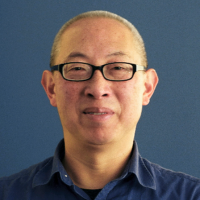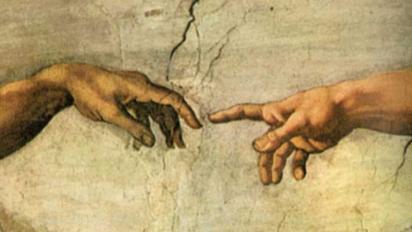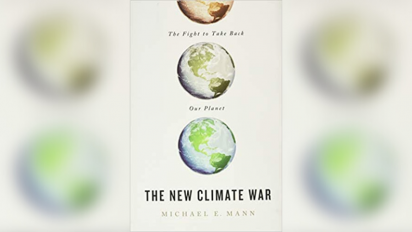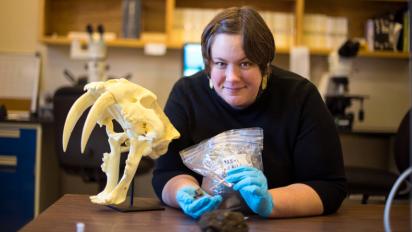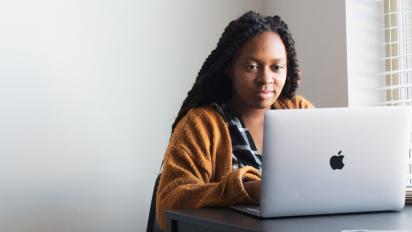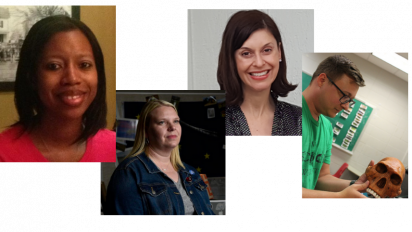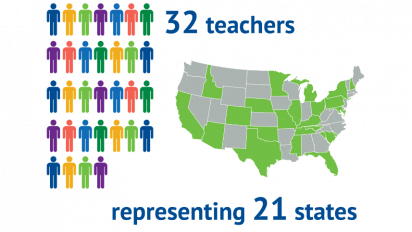CUNY grad students throw themselves into NCSE climate game
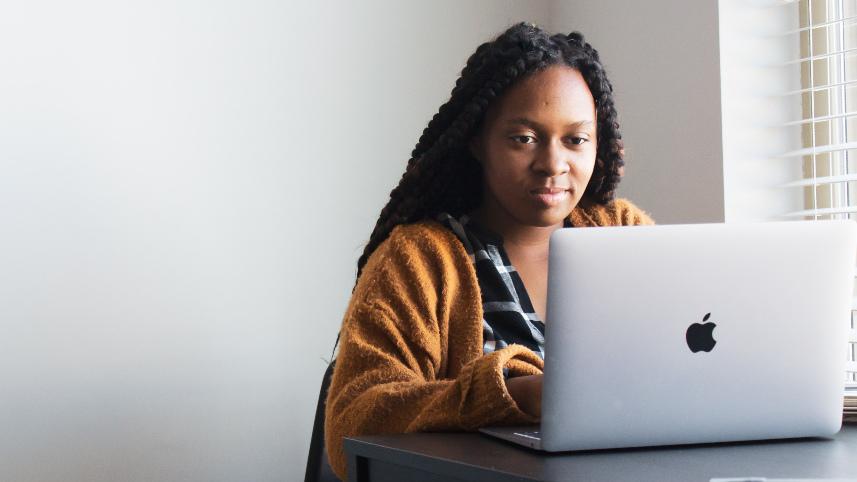
Photo by Daniel Thomas on Unsplash.
During a recent spring week, hundreds of City University of New York (CUNY) undergrads were glued to their devices, engaged in a class assignment. But instead of watching a lecture or a PowerPoint presentation, they were debating how to spend $100,000 to best equip their town to deal with climate change.
“With solar panels you guys are personally getting affected, save money, save environment, save time,” argued one student in the online chat.
“I have solar panels and they barely do anything. Another [Hurricane] [S}andy and those panels are gone,” countered a student who championed disaster preparedness.“
#EDUCATEYOURKIDS!” urged another, signaling that the funds should go toward climate change education.
The students spent the better part of three hours participating in NCSE’s Climate Change Summit: 100K Challenge, a role-playing game that asks participants to assume a persona tasked with understanding more about one of five climate change mitigation strategies for a hypothetical town: K–12 education, reforestation, disaster preparedness, solar installation, and wastewater management. After conversation and debate, the participants vote and the strategy that receives the most votes is the one that will be (fictionally) implemented.
The game was conceived by Director of Community Science Education Kate Carter, who wanted to create an online experience that made climate change and its implications understandable, engaging, and relatable. “Far too often, we stop at sharing the facts with students,” Carter explains. “But this leaves them largely unprepared to integrate the science into the everyday, where social values and lived experience are often equally important. Climate Change Summit gives students a chance to make the science of climate change their own.
”Carter, who created the game in 2020 with the help of NCSE intern EJ Herdmann and NCSE Graduate Student Outreach Fellow Annie Stoeth, has implemented Climate Change Summit several times before, but the CUNY week-long event was the largest implementation by far. Carter collaborated with Stoeth — a doctoral student in earth and environmental sciences at CUNY’s Graduate Center — to plan and conduct the event, as a lab for a general education-level environmental science class. The scale of the CUNY event also enabled research into the efficacy of the game. (A paper on the findings is under review at Environmental Education Research.)
“It was really exciting to be able to interact with that many non-majors, who are basically seeing environmental science for the first time at a college level,” Stoeth remarks. “Every class has a different personality, and during the Climate Change Summit, that was highly evident. Some classes were data-driven and careful and some classes were salty and debated really hotly.”
Stoeth says the pandemic was one of the driving forces behind the CUNY collaboration. Professors were looking for ways to make their lab sessions interactive, despite the lack of physical proximity due to coronavirus restrictions. Stoeth suggested Climate Change Summit as the lab for the course Planet Earth: Resources (and Hazards) for the 21st Century, which had scheduled to devote a week to climate change, and the instructor agreed.
Once students understood the parameters of the game and were given their specific character roles, they dove in — enthusiastically. “The very first session, one of the students who was assigned stormwater management redrew her character crying with tears of grief and gave this emotional appeal that was eye-catching and kept the students engaged for the rest of the session,” Stoeth recalls. Even the lab teaching assistants, who were supposed to be objective facilitators, got so into the game that they began advocating for one strategy or another.
This was all exactly as intended.
Role-playing can provide a way to avoid having to admit that your previous position might have been wrong, and an opportunity to fully empathize with another perspective.
“Changing your mind — whether the change is to listen to the science or to make a more environmentally friendly choice — that’s truly hard work,” Carter says. “Role-playing can provide a way to avoid having to admit that your previous position might have been wrong, and an opportunity to fully empathize with another perspective.”
As one student reflected after the game, “At first I thought my character’s proposal and the group he was part of was good and had a chance at winning. But then hearing everyone else talk about their groups and proposals made me realize that stormwater management was not really beneficial to everyone but only to certain groups.”
As part of their research effort, Carter and Stoeth are examining how taking on the role of a character with views different from your own builds empathy and invites a change in perspective.
“Unsurprisingly,” Carter notes, “the people who were most likely to change their minds in the game [e.g., voting for another proposal than the one assigned to them] are the people who had relatively low levels of knowledge about climate change but high motivation to learn. Hopefully this game helped them to form an identity as a climate activist and informed citizen.”
If the students’ reflections are any indication, the game did just that. “The Climate Change Summit made me realize how much of a difference one can make in their community by making their voice heard and coming together to face environmental issues,” wrote one student, mirroring a sentiment widespread among participants.
Stoeth is planning to use the data she and Carter collected to improve the game by refining the data provided to players about the mitigation strategies and by tweaking the game’s various characters. She plans to implement the game in future CUNY courses and hopes other educators will take up Climate Change Summit and offer it to their students.
After all, despite the challenges associated with distance learning, Climate Change Summit proved to Stoeth that engaging, inquiry-driven learning about climate change is possible online. “It is so hard to forge connections with remote learning,” Stoeth says, “and we were able to create meaning and fun, even in the midst of COVID.”

